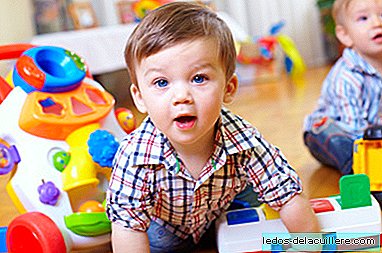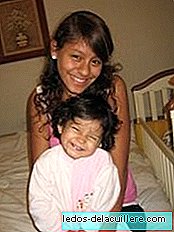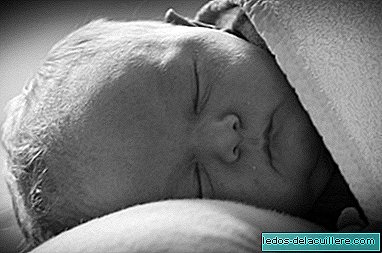
We continue with the second part of our interview with the psychologist Cristina Silvente. In the first part we wanted to clarify some concepts about parenting behaviorism and about the types of attachment that parental behavior produces in children. Given the consequences that poorly established attachment can have on the emotional health of children, we will continue to deepen them and prevention.
Can detecting attachment problems and influence them can put the situation on track and prevent more serious consequences in adulthood?
It is always possible to redirect a situation, but psychologists and educators would have nothing to do. Apart from the parents, other figures can establish secure attachments: uncles, grandparents, the neighbor, the teacher, the coach. The important thing is that there is someone at least. And that someone can sometimes appear later in life. It is always possible to establish a new secure attachment. Actually that is what we often do psychologists and psychotherapists in consultation. We are or try to be an attachment figure.
What problems do people present to you usually come to your office?
Difficulties to face a traumatic situation, insecurity, inability to make decisions or defend one's rights. I have found many cases that, working on present situations that created insecurity, guilt, fear, scenes of little ones, including babies, appeared crying alone in their cribs with great terror, of which they had not been aware until then and that when They have commented with their mothers, they have corroborated that this happened as they revived in consultation.
How can a mother break the parenting guidelines she has received?
The most important thing is to BE AWARE. From awareness, you can seek help and change. But these patterns are deeply rooted, it is the world we grew up in and sometimes those patterns can appear without being able to control them from reason and need a little patience and determination to work them.
Do we trust our children and their messages?
In general, we have been educated to ignore the emotional aspect of babies and children. It seems that the important thing is that they are fed, changed, that they are not sick, and that the rest are attempts to dominate or manipulate us.
In reality, society avoids pain and discomfort, especially emotional, we do not know what to do with it, it is better to shut it up and hide it. Because it is what we have learned from the first days of life.
What is the reason for letting children cry?
Precisely because the emotional aspect is minimized, because its consequences are never talked about, although the scientific evidence has demonstrated the adverse effect of letting them cry for years. They are afraid of being controlled and manipulated, because the information given to us has been contradictory.
It seems as if love and attention made bad and manipulative people, when it is the opposite, not attending to them is when it makes them manipulative.
Does it cause trauma to let you cry?
Yes. We are not talking about a time when we are in the bathroom or in the kitchen, we are talking about something continuous and systematic.
And punish or hit a cheek?
The same, because the message is you are not worth it, I do not respect you, you are not respectable. If you want to get something, you have to do it that way.
What is an attachment trauma?
This is what we call any emotional injury or damage between the baby and his attachment figure, whether due to loss, or not having established a secure attachment. It is the base where many psychological disorders are formed, although not only is attachment the absolute determinant, it is the ground where the plant grows.
Can the fear that something bad happen to our son can prevent us from letting him grow?
The expression would be that fear shows him that the world is not safe, is to grow in a world that is not safe, and that it is necessary to always be on the alert to survive. Growing up will grow, but with insecurity, and that insecurity would make you not try, not learn. Missing wonderful opportunities.
I have been a fearful mother for years and I blame him for the trauma of a very traumatic pregnancy and childbirth, in which I thought my son could die. I had a hard time being aware of this and overcoming it, understanding it as part of my life and learning from it. How to realize that we are transmitting our fears?
Observing ourselves, how we react when our children cry or fall in love. Also observing our children, how they face new situations, if they can be calmed down, or it costs, if they constantly need our presence beyond 3-4 years, if they are indifferent to positive affection, or to our presence.
Although you have to look at everything as a whole.
Prevention is essential, right Cristina?
Always. That is why I always urge mothers or pregnant women to have evidence-based information, which is nothing more than having corroborated what mothers feel. Although sometimes it is complicated because we are too contaminated with prejudices and bad information.
What advice would you give a woman so she can establish a secure attachment with her child?
Let him follow his instinct, listen and listen to his feelings. If your baby's crying or demand surpasses you, ask for help, from your environment or on a professional level. Surround yourself with other mothers or people who give you support and security.
That your baby always has reasons if she cries and that she attends to him, that babies are not spoiled by taking them in their arms, they will spoil when you do not take them.
And to overcome a traumatic birth?
Seek professional help. Traumas do not disappear by magic. In psychological therapy a woman can reframe what happened, we have powerful tools to process it, we can find peace, be able to hear about births without feeling great pain in her chest, to get to see her birth as part of her life, from which she learned and grew.
Being able to stop looking like the culprit, but as a part of all the circumstances that occurred, being able to face another pregnancy and childbirth without fear, or being able to help other women find their way from the peace and wisdom of those who have their In harmony.
And in the case of gestational losses?
Gestational losses are usually a traumatic event as long as you are not receiving the necessary social support. We are seeing that those couples who have support in the health center and in their environment, that validates their emotions, that accompanies them without judging or forcing them, have a more “sweet” duel, although it hurts to have lost a baby before having given him the welcome. In many cases, careful accompaniment is necessary, either from a mutual aid group that has made a previous dueling tour, or by a professional expert in grieving. Sometimes a loss can affect the bond with the following sons and daughters, for all the fear during pregnancy, for the loyalty to which he left, for the fear that something will happen to him. Death leaves us without feeling of security, unarmed, and can cause excessive control and intrusion.
Currently there are books dedicated to the topic of gestational losses, associations and specialized spaces and expert professionals to turn to. They have a range of possibilities, I would show them to choose one, several, or all.
We ended up here, greatly grateful for the time she has dedicated to us, although, the truth, we would continue talking with Cristina about many things about the emotions of mothers and children. I must say that I can interview and get to know people like psychologist Cristina Silvente better They make my work in Babies and more something wonderful that allows me to continue growing and learning. I hope that it happens to our readers the same.












